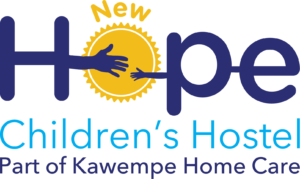Insights from the Palliative Outcome Scale at Hostel
Since its inception in September 2016, the New Hope Children’s Hostel at Kawempe Home Care (KHC) has played a vital role in facilitating the cancer treatment of 414 children, predominantly hailing from the rural regions of Uganda. These children, along with one designated caregiver, seek respite and support during their treatment at the Uganda Cancer Institute (UCI). The burden of pediatric cancer extends beyond the physical ailment, often causing anxiety, trauma, and depression in both patients and their families (1). At New Hope Children’s Hostel, we offer free psychosocial care to all our young guests, with a focus on evaluating these services and providing insights for future research and practice.
Table of Contents
Method
At KHC, the social worker and psychotherapist assess and manage psychosocial stressors through counselling, spiritual care, informative sessions for children and caregivers, and play and music therapy for children. Pain management is done through the proper administering of morphine and other medicines prescribed by UCI. The hostel’s psychosocial care is evaluated with the Palliative Outcome Scale (POS-C; APCA, 2012) (2). POS-C is a standardized tool to assess the disease-related quality of life and track possible changes over time for children and their caregivers in palliative care settings. At KHC, assessment with POS-C is accomplished at four visits within a child’s stay, with the first interview upon admission and repetition every two weeks. The current dataset includes complete filled POS-C questionnaires of 86 children and their caregivers from 2016 until April 2019.
Results
An in-depth analysis using average scores demonstrates a noticeable enhancement in the disease-related quality of life for both children and caregivers throughout their stay at KHC. Children exhibit improved physical and mental well-being, as indicated by reduced pain, symptoms, and crying, along with increased feeding, knowledge, happiness, and motivation to play. Caregivers exhibit a positive emotional adjustment to their situation, in addition to improved knowledge and aspirations for the future. While all other indicators consistently show improvement across the four measurement points, two areas, body problems in children and worries related to their child’s illness in caregivers, experienced a slight increase at the third visit and subsequently decreased.
Conclusion
Our findings substantiate the widely accepted belief that comprehensive palliative care significantly enhances the psychosocial well-being of families affected by pediatric cancer. The temporary increase in body problems among children and caregivers' concerns, likely attributed to chemotherapy side effects, underscores the importance of continuous psychosocial monitoring following the diagnosis to support families through the challenging phases. Overall, our study calls for a strengthening of psychosocial support within palliative care settings.
References
(1) Kreitler, Weyl Ben-Arush & Martin (2012). Pediatric Psycho–oncology. Psychosocial Aspects and Clinical Interventions. John Wiley & Sons, Ltd, 2012.
(2) APCA(2012). African Palliative Care Association. Guidelines for using the APCA African Children’s Palliative Outcome Scale. ISBN 978 997 020 409.

